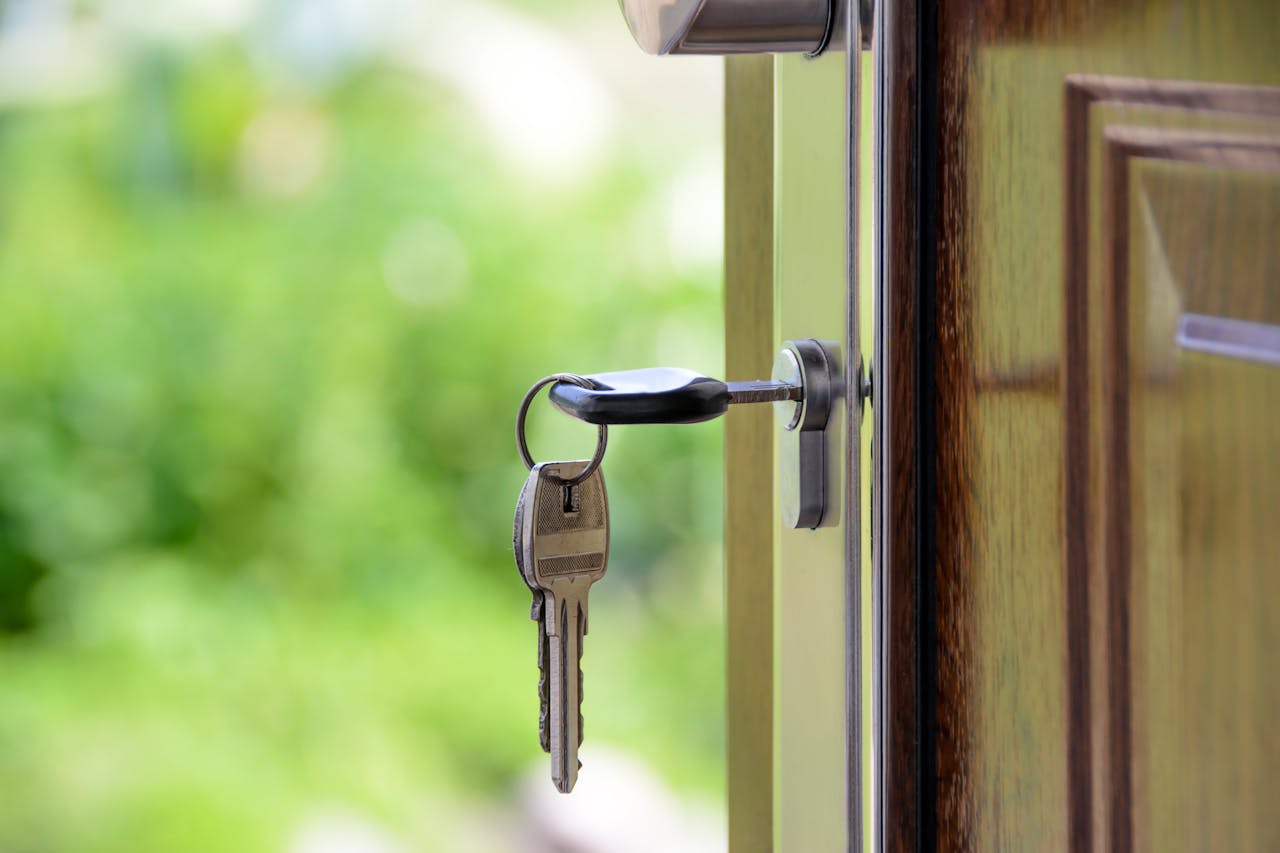1. What exactly is a mortgage?
A mortgage is a loan where you pledge your property as collateral to a lender in exchange for funds to purchase or refinance real estate.
In simple terms: you borrow money to buy a home, and the home itself becomes the lender’s guarantee.
Unlike unsecured loans (like credit cards), if you default on a mortgage, the lender can take back your home through foreclosure.
In 2025, most mortgages in the U.S., Canada, and the U.K. follow a similar structure:
- You pay the loan off in monthly installments, usually over 15 to 30 years.
- Your payments include both principal and interest.
- Your interest rate can be fixed or adjustable.
Mortgages are essential for most people to buy a home. In the U.S., over 63% of homeowners have an active mortgage (source: Federal Reserve, 2025).
2. How does a mortgage actually work?
Here’s how the mortgage process typically works from start to finish:
Step 1: Application and pre-approval
You submit financial details (income, credit score, debts). The lender gives you a “pre-approval” letter telling you how much you can borrow.
Step 2: Choose a property and finalize loan
Once you choose a home, the lender will order an appraisal and underwrite your loan.
Step 3: Signing and closing
At closing, you sign the mortgage contract, receive the loan, and the property becomes legally yours. You start making monthly payments.
Step 4: Repayment
You make fixed monthly payments including:
- Principal: The loan amount
- Interest: The cost of borrowing
- Escrow: Taxes and insurance (in most cases)
Step 5: Pay off or refinance
You can pay off the loan over time or refinance if better interest rates become available.
📌 Example: For a $300,000 home in California, with 20% down and a 30-year fixed-rate mortgage at 6.5%, your monthly payment would be about $1,517 (excluding taxes and insurance).
3. What types of mortgages are available in 2025?
| Type | Interest Rate | Down Payment | Flexibility | Best For |
|---|---|---|---|---|
| Fixed-rate mortgage | Locked for full term | 5%-20% | Low | Buyers seeking payment stability |
| Adjustable-rate mortgage (ARM) | Low initial, then variable | 5%-10% | Medium | Short-term buyers, rate speculators |
| FHA loan (U.S.) | Low fixed | As low as 3.5% | Moderate | First-time homebuyers |
| VA loan (U.S.) | Fixed or variable | 0% | High (veterans only) | U.S. military personnel |
| Interest-only mortgage | Initial period only | 10%-30% | High | High-income, short-term buyers |
| Balloon mortgage | Low initial, lump-sum later | 10%-20% | High risk | Special investment properties |
📌 In 2025, fixed-rate loans remain the most popular in the U.S. and U.K., while ARMs are gaining traction due to rising interest rates.
4. How do interest rates affect your mortgage?
The interest rate you get determines your monthly payments and total loan cost.
Factors affecting your mortgage rate in 2025:
- Your credit score: 740+ scores get the best rates
- Loan type & length: 15-year loans typically offer lower rates than 30-year
- Down payment: More down = lower rate
- Macroeconomy: Inflation, central bank rates (e.g., Fed, BoE)
📊 Example: On a $400,000 loan:
- 6.5% rate → $2,528/month
- 7.5% rate → $2,797/month
The total interest over 30 years differs by $97,000.
5. What are the requirements to qualify for a mortgage?
Here’s what most banks/lenders check in 2025:
| Requirement | U.S. Standard | Canada/U.K. Similar Requirements |
|---|---|---|
| Credit Score | 620+ (700+ for better rates) | 650+ usually preferred |
| Income-to-debt ratio | Under 43% | Under 40% |
| Down payment | 3.5%-20% | Often 5%-20% |
| Employment history | Stable income for 2+ years | Same |
| Property appraisal | Must match loan amount | Required |
📌 Tip: First-time buyers may qualify for government programs with relaxed requirements (e.g., FHA, Help to Buy).
6. Common mistakes to avoid when getting a mortgage
- Ignoring total loan cost: Focus on APR, not just monthly payment
- Not locking your rate: Rates may rise suddenly
- Stretching your budget: Avoid maxing out your approval limit
- Skipping pre-approval: Makes your offer less competitive
- Assuming fixed is always better: Not true for short stays (<5 years)
- Forgetting about closing costs: Usually 2%-5% of home price
📌 Case Study: In 2025, a Toronto buyer lost a deal because their variable-rate pre-approval expired amid rate hikes.
7. Frequently Asked Questions
Q1: Can I get a mortgage with bad credit?
→ Yes, but you’ll face higher rates and fewer options. Consider credit repair or co-signers.
Q2: What’s the best down payment amount?
→ 20% avoids private mortgage insurance (PMI), but 10%-15% is often acceptable.
Q3: What if I want to pay off my mortgage early?
→ Most fixed-rate mortgages allow early payment, but some have penalties. Check your loan terms.
Q4: Can foreign nationals get a mortgage?
→ In the U.S./U.K./Canada, yes—but expect higher down payments (30%+) and extra paperwork.



